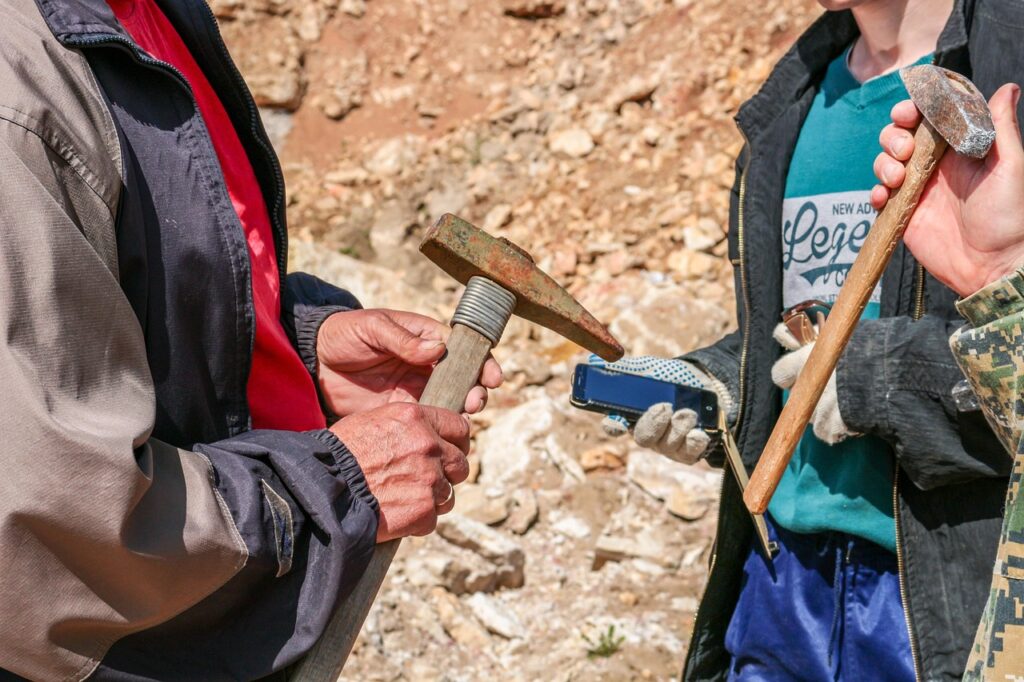Mining geologists provide services to mining companies, including exploration for minerals and evaluation of ore deposits. Mining companies hire mining geologists because their skills are required to discover new mineral deposits. They also evaluate existing or historical information on a particular location that could potentially be mined, depending on the geological features present. Employers may include governmental agencies, consulting firms, or mines themselves.
The working environment can be challenging with long hours in remote locations. However, the work is very interesting since you get to visit various parts of the world where different geological formations are found. Geologists working for mining corporations often have an opportunity to travel around the world either on field trips or at their organization’s expense.
Mining geologists must be prepared for long periods away from home, especially while conducting fieldwork in remote locations. Some geologists may even conduct their work while standing in water or working with hazardous chemicals and equipment (e.g., mining explosives). Mining geologists also spend time writing reports, analyzing samples, and using research tools such as microscopes to examine minerals that are often microscopic.
Due to the specialties within this group, several different titles are used by mining geologists, including exploration geologist, mine geologist, senior/staff/chief mining geologist, economic/resource/mine geologist, etc. The most common title is “mining geologist” itself.
Mining geologists often need to work outdoors. For example, they are given maps and asked about the vegetation, type of rocks, ore deposits detected, etc., during exploration fieldwork. Geologists also travel extensively to visit mines or attend conferences related to their profession.
Fieldwork can be physically demanding, requiring long hiking trips throughout remote areas or working in swamps/rainforests to reach potential site locations where minerals are displayed at the earth’s surface. Some geologists may also use airplanes or helicopters for quick access into areas that would otherwise be inaccessible by vehicle.
How To Become A Mining Geologist?
There is a bachelor’s degree course available known as Bachelor of Science (B.Sc) in mining geological engineering, usually taken by mining engineering graduates. However, most employers will not require this qualification to start with – but rather prefer some experience in the field.
Bachelors can also choose to study Master of Science (MSc) or Doctor of Philosophy (Ph.D.). However, you prefer to have some work experience before taking on a Ph.D. course.
A master’s degree will allow you to get your first job as an exploration geologist, while doctoral degrees are required for more specialized jobs such as researcher and professor. A Ph.D. takes approximately 4–5 years, while it may take less time for students enrolled in their respective MSc courses under double/joint-degree schemes where two degrees are completed in less than the usual time.





